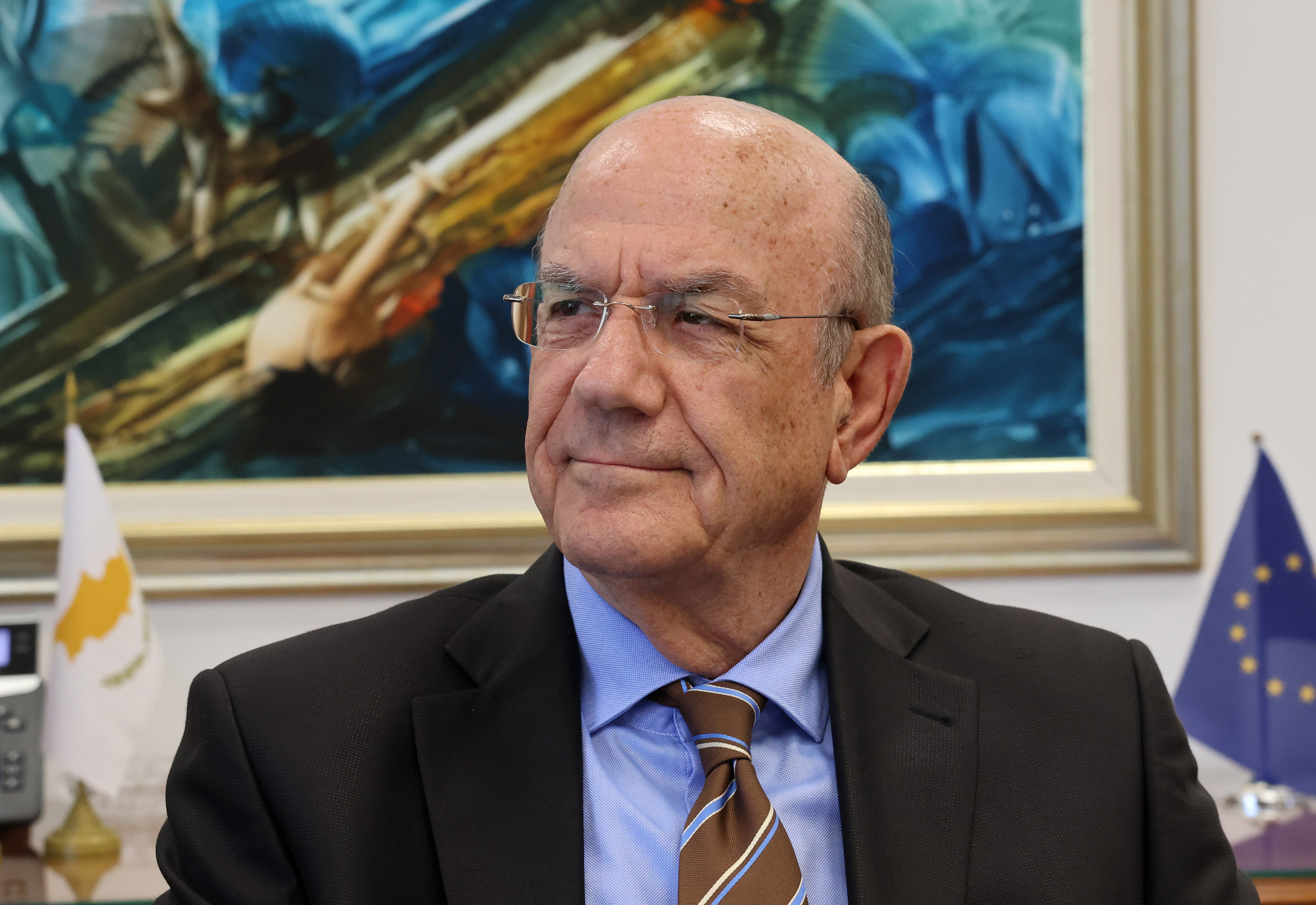Minister says future generations must be spared new debt and any return to memoranda
Finance Minister Makis Keravnos on Wednesday addressed the 4th Akel economy forum in Nicosia, expressing the government’s commitment for a “more resilient economy, a fairer society, and a more sustainable future“.
In his address, the minister also detailed major policy plans concerning housing, climate, and energy.
In a similar vein to yesterday’s comments by government spokesman Konstantinos Letymbiotis, Keravnos defended the government against criticisms regarding its ability to manage the country’s issues.
“We are working concertedly and methodically to turn difficulties into opportunities and for a more resilient economy, a fairer society, and a more sustainable future for all,” he said.
The minister did acknowledge that both the international and European economies are facing turmoil and geopolitical risks.
However, he stressed that the Cypriot economy “stands out for its resilience and prospects“.
Keravnos stated that Cyprus is among the EU countries with the best fiscal performance, projecting a high primary surplus of five per cent.
Furthermore, the economy is expected to continue its growth trajectory, which will lead to a significant reduction in public debt as a per cent of GDP, falling below the 60 per cent threshold by the end of 2025, which is sooner than the initial target of the end of 2026.
This “remarkable course,” he added, is reflected in the assessments of international rating agencies, with Cyprus having returned to the ‘A’ rating category after 13 years, following nine upgrades within the last two years.
This “strong” economic foundation, the minister emphasised, allows for the implementation of social and developmental policies, such as the housing policy and the green transition.
Moreover, Keravnos highlighted the ongoing tax reform as a cornerstone of the government’s strategy, calling it “the most significant” of the past few decades.
He explained that the reform directly addresses the issues discussed at the forum (housing, climate, energy, and social cohesion) and aims for a system that is “fairer, more efficient, and friendlier” for citizens and businesses.
For households, the minister announced tax deductions are planned for interest on first-time home loan purchases, for the energy upgrade of a primary residence, and for the purchase of electric vehicles.
For businesses, increased capital allowances are planned for energy upgrade expenditures to reduce their operating costs.
Regarding housing, Keravnos said that the issue is not just a Cypriot phenomenon but a “European challenge“.
He referenced a recent European study showing that housing prices in the EU rose by 58.33 per cent between 2015 and 2025, while the average European household spent 19.2 per cent of its income on housing in 2024.
He pointed out that Cyprus, along with Italy, had the lowest housing price increase over the last ten years, at 13.71 per cent for Cyprus and 13.36 per cent for Italy.
Despite this, the need for affordable housing in Cyprus “is more pressing than ever,” he stated.
The government’s housing strategy is based on two pillars, the minister continued.
The first focuses on boosting residential stock through urban planning incentives, the ‘Build to Rent’ scheme, the ‘Renovate and Rent’ scheme for utilising vacant homes, and financing projects by the Cyprus Land Development Corporation.
The second pillar involves facilitating access to housing with targeted schemes for young people and families, special schemes for mountainous and rural areas, and rapid digital licensing aimed at issuing permits within 40 days for simple developments.
“These programmes are expected to lead to the creation of more than 1,900 new units, many of which will be integrated into the affordable housing market,” the Finance Minister said.
Moving to the green transition, the minister emphasised that the climate and energy crisis “now defines every aspect of development.”
He stated the government is implementing a cohesive plan for a green, clean, and sustainable Cyprus, aligned with the European Green Deal and the goal of climate neutrality by 2050.
The National Energy and Climate Plan (NECP), he said, includes projects worth €3.5 billion, or €6.4 billion with European contributions.
These include investments in Renewable Energy Sources (RES), energy upgrades for homes and businesses, strengthening the circular economy, upgrading forest infrastructure and fire protection systems, and implementing ‘Photovoltaics for All’ and e-mobility programmes.
Keravnos highlighted the special emphasis given to water projects, with the related budget increasing to 38 per cent in 2026 from 32 per cent in 2025, and an investment of €140 million for water purchases from desalination plants.
This is “the largest amount ever allocated for this purpose,” he said.
“We are thus implementing our commitment for continuous and uninterrupted use of desalination, with an increase of 32 per cent in the water we receive, thanks to the operation of all seven new mobile desalination projects being implemented by the Nikos Christodoulides administration,” he added.
The minister also addressed the need to balance environmental ambition with economic competitiveness.
He mentioned that the EU Council recently decided to postpone the implementation of the new Emissions Trading System for buildings and road transport (ETS2) by one year, moving the start from 2027 to 2028.
Furthermore, the Social Climate Fund will provide €65 billion to member states to support citizens in the transition.
For Cyprus, the total available amount for the 2026–2032 period is expected to reach €174 million.
Of this amount, €131 million will come from the Social Climate Fund and the remaining €43 million will be the national contribution, with the draft national plan already in public consultation.
Furthermore, Keravnos also stressed that the government’s economic policy is “people-centred, balanced, and prudent“.
“We do not have the right to burden future generations with additional debt or memoranda,” the minister said.
Finally, he expressed his belief that “such forums generate ideas and proposals that can lead Cyprus to a more resilient and sustainable future“.






Click here to change your cookie preferences